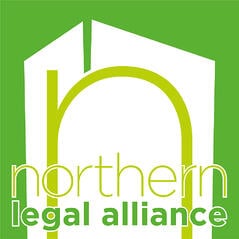What does the future of the legal profession look like?
When people consider the future of the legal profession, many still think of solicitors sitting behind large wooden desks, in grand old buildings, a library of books behind them on a bookshelf, and filing cabinets full of client files. While that may still be the reality for most, we are seeing more and more firms going ‘paperless’. This often means documents being stored more securely electronically, in a way that is easier to find and access at a future date, and freeing up space within their office for staff that make the firm money.
We are also seeing a growing trend of solicitors considering whether they even need an office at all. The new generation of client wants value for money, access to legal advice at a convenient time for them, and in a convenient way. With internet/email access and a mobile phone, many types of legal work can be easily done outwith the traditional setting. Often legal work does not require many face to face meetings, and in fact in some types of work (eg personal injury), a solicitor may never meet their client. Therefore, if a firm can provide a slick and efficient service, for a lesser fee, by cutting unnecessary overheads, they are going to win more clients. Even if your line of work does require meeting in person, there are many serviced offices available in convenient locations for your client, and I don’t think clients are bothered these days about whether your name plaque is on the wall. The additional services required, such as somebody to answer the phone, to run your cash room, and to type letters/documents, can all be easily outsourced.
Even for larger firms, who are going to maintain an office, these are no longer old grand townhouses, but modern buildings designed to accommodate up to date IT services. I think that the forward thinking of these firms will also continue to encourage provision of remote access, hot-desking, flexible working arrangements and amended hours. Why wouldn’t they?
Remote/home working allows firms to retain young talent, male and female, who may have children to look after, but still want to progress their careers. The same applies for amended hours (eg starting/finishing earlier and condensed hours) which will often work better for childcare arrangements. There may also be a benefit to your clients that somebody is there to answer the phone, or respond to enquiries, before the rival firm down the street that doesn’t answer calls until 9am.
Flexible/remote working and hot-desking also frees up space within your office, or may in time allow you to lease slightly smaller premises and thereby make cost savings. It also appeals to young lawyers entering the profession. These are people who would happily work from a laptop, in a café or at home. In fact, they are not only happy to do it, but they expect to be able to do it. I have heard of banks and large accountancy firms seizing upon this, and putting clauses in employment contracts that require staff to work outwith the office a certain number of days a week. I think that law firms will eventually catch up with this.
The issue which may take longer to address is the perception that the person who sits at his or her desk for the most hours every day, is the ‘hardest worker’. This doesn’t take account of two important things: (a) people working more efficiently, and (b) people working remotely or flexible hours. Perhaps over time, firms will look at efficiency and fee/new client generating work as more important than spending endless hours at your desk!
So what does the future of the legal profession look like? Who knows, but I think it is being forced to look at cheaper, more efficient ways of providing legal services to clients. The future of the legal profession is likely to lead to new and innovative ways of running a legal firm, with less non fee-earning staff, less need to be physically present in an office all day, and increased use of technology to provide services at times and in ways more convenient for the client, rather than what is convenient for lawyers. With the advent of Alternative Business Structures, there is now competition from non-traditional law firms, who are likely to have a better awareness of client behaviour and demands. Lawyers are no longer able to sit within their comfort zone, where they only have to compete with other lawyers.
Gregor
Please connect with me on LinkedIn and Twitter for future articles and blogs


